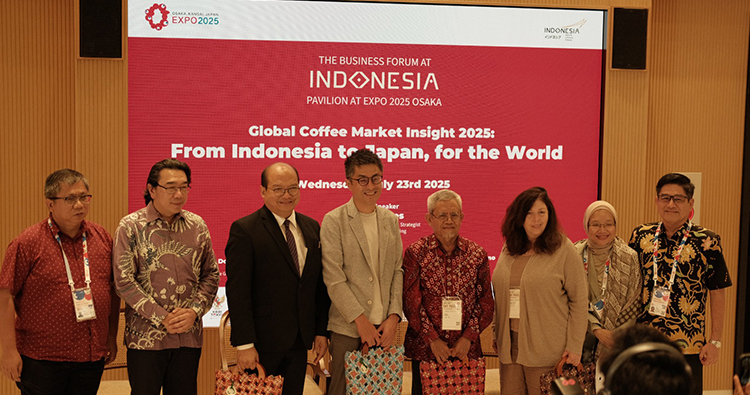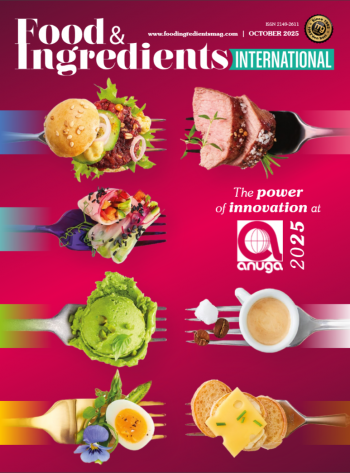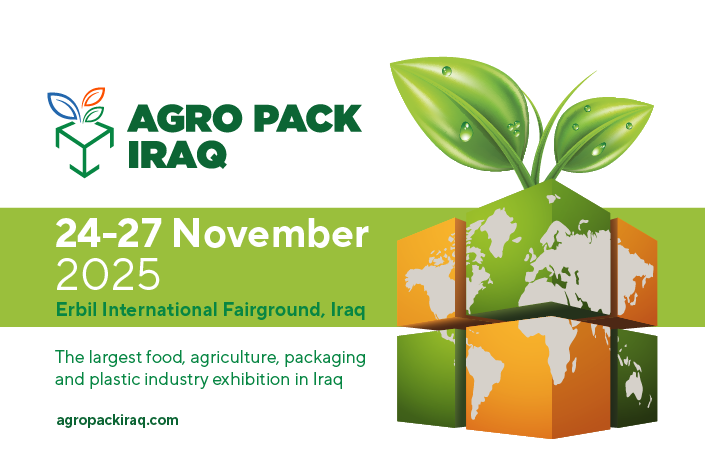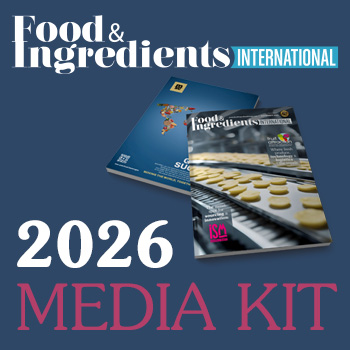The Japanese coffee market is entering a new momentum, opening opportunities for high-value, consistent, and sustainable products. As one of the world’s largest coffee producers, Indonesia holds a significant potential to re-establish itself as a key player in the global supply chain—especially in Japan, a country with a long history of ties to Indonesian coffee.
As part of its strategic initiatives, the Indonesian Coffee Development Education Foundation (Yayasan Pendidikan Pengembangan Perkopian Indonesia – KAPPI) has been actively fostering cross-border dialogues to rebuild Indonesia’s coffee strength in export markets. One concrete step was the recent international forum titled “Global Coffee Market Insight 2025: From Indonesia to Japan, for the World” at the Indonesia Pavilion, World Expo Osaka. The forum served as a crucial meeting point for global experts, industry players, and policymakers to reassess Indonesia’s position in an increasingly competitive and disruptive global coffee trade.
A keynote speaker at the forum was Judith Ganes, a renowned New York-based commodities analyst and President of J. Ganes Consulting, who has advised major corporations, financial institutions, and policymakers for over two decades. Her presence added strategic weight to the discussion, particularly as she delivered insights based on direct field visits to coffee plantations in Indonesia.
“My visits to plantations in Sekincau, Lampung, and Warnasari, West Java, reaffirm Indonesia’s tremendous potential—not only in varietals and quality, but also in the strong community involvement and the promising new generation of coffee farmers,” said Ganes. She stressed that in a volatile price environment and amid global pressures, producing countries that offer quality, compelling stories, and sustainability will remain relevant in the global market. “Indonesia is building the right foundations for that,” she noted.
This forum followed on from KAPPI’s earlier event at the same venue, “Comeback with Confidence – Reviving the Glory of Indonesian Coffee in Japan”, which focused on restoring trade relations with Japan after tightened Maximum Residue Limit (MRL) regulations temporarily hindered exports. That discussion brought together Japanese and Indonesian exporters and stakeholders to find tangible solutions, from farmer education to more transparent traceability systems.
Through these forums, KAPPI reinforces its education-driven approach, farmer regeneration efforts, quality enhancement, and multi-stakeholder collaboration—believing that such strategies can address systemic challenges while reopening high-value export opportunities.
Masataka Nakano of Key Coffee Inc. emphasized that Japanese consumers are highly sensitive to taste and quality consistency. According to him, Indonesian coffee that can maintain quality will secure a special place in Japan’s market. His remarks reflect Key Coffee’s longstanding relationship with Indonesia through PT. Toarco Jaya, established in 1976 in Toraja.
From a diplomatic perspective, Dody S. Sembodo Kusumonegoro, Minister Counsellor at the Indonesian Consulate General in Osaka, highlighted coffee’s role as a vital medium for Indonesia’s cultural diplomacy. “The Indonesia-Japan coffee relationship is a long-standing story that unites culture, taste, and values. This forum reopens strategic dialogues to strengthen Indonesia’s place in the hearts of Japanese consumers,” he said.
Moelyono Soesilo, Head of the Specialty Coffee Division of the Indonesian Coffee Exporters Association (AEKI), noted that challenges like the MRL issue have triggered systemic improvements, including farmer training on safe pesticide use, strengthening laboratory testing, and adopting intercropping systems—all aimed at ensuring Indonesian coffee meets the requirements of export destinations.
Roby Wibisono, KAPPI’s official representative, added, “Our vision is to build an informed and empowered Indonesian coffee community. The future of Indonesian coffee lies in a new generation of farmers and coffee professionals growing together—from plantations to cafés, from producers to consumers. Through research, training, and quality standard reinforcement, we are not only shaping the future of Indonesian coffee, but defining it for the world.”
With support from Japanese industry leaders such as UCC Japan and Key Coffee, alongside collaboration between governments, associations, and local coffee communities, Indonesia is steadily rebuilding a more resilient and sustainable export pathway—not only to meet today’s challenges but also to ensure Indonesian coffee remains a top choice in the future.




















